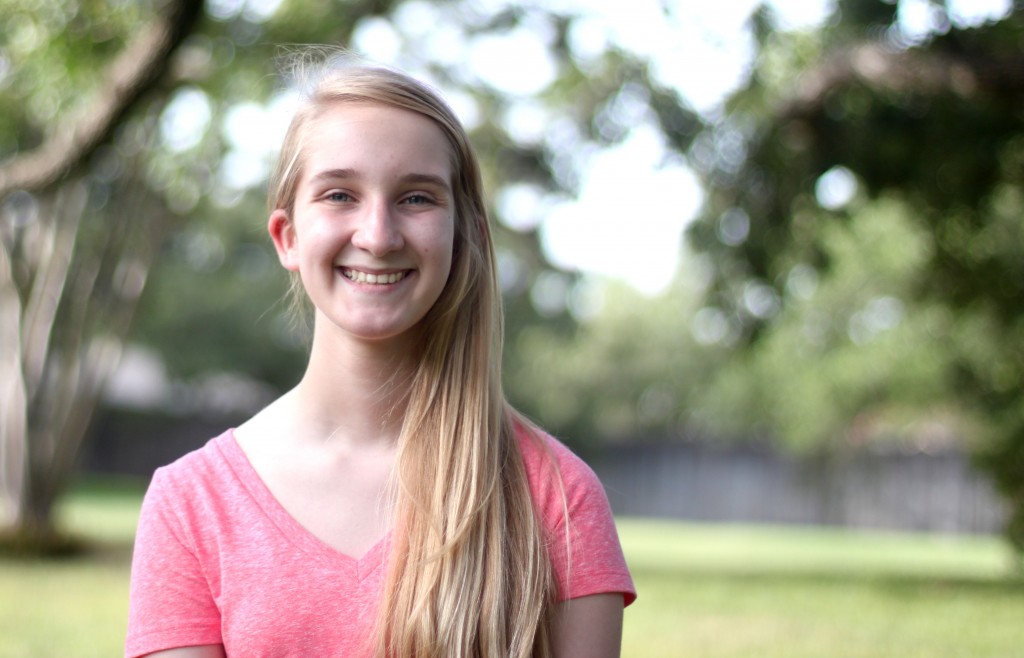
by Haley Mitchell, staff reporter
Following my 16th birthday, I will take my driving test. In anticipation, I’ve spent hours parallel parking, aimlessly speeding up and down the highway and craning my neck to look both ways at intersections — even when I’m not behind the wheel. Yet, I realized that one of the most important aspects of driving was one I’d been neglecting.
I was driving home from work with my mother in the passenger seat and my little sister in the back, cranking up the radio, cruising along in comfort — until suddenly, we’re not cruising along and instead jerking violently to the left as an oblivious driver pulls out in front of me. Something like “What the knick knack paddywhack frickety-frack was that guy doing?!” left my mouth, but even though we continued home without so much as a hiccup, the incident still boiled in the back of my mind. Are you kidding me? Was he driving with his eyes closed? Was it really so hard to wait to merge instead of nearly sideswiping my Cherokee?
It was the beginning of an era.
I started driving with the full expectation that I wouldn’t be a bad driver — and I’m not. My attitude, however, is that of a name-calling, window-pounding, aggressive lane-passing road rager.
I established the foundation of my bad habit with an unattractive nostril snort-eye roll combo. It was followed by my voice, slightly shrill, announcing in a complaining tone, “You don’t have to be rude!” I was fully aware that the only person who could hear me was the parent sitting in the passenger seat, but as a fairly vocal person, I just thought I’d point out to no one in particular that the other party in question didn’t have to get upset at me for going the speed limit. From there, even the little errors other drivers made would set me off — changing lanes in the middle of an intersection, not coming to a complete stop before turning — just tiny mistakes that barely made a difference.
I hadn’t completely realized my bad habit until one of my licensed friends asked me, “Do you road rage?” and upon hearing my definitive reply of “no,” my sister snorted derisively. Around the same time I started to notice my road rage, I also noticed I was a bit of a backseat driver. If a friend drove me anywhere, I took note of every little thing they’d do behind the wheel. If I saw something they could have done better, I obnoxiously pointed it out. When my parents drove and didn’t automatically correct to compensate for some new obstacle, such as a dummy who likes to tailgate, I made sure they were aware of the dummy’s presence.
In light of these new discoveries, I reflected back to October, when I spent my afternoons in a stuffy classroom learning the rules of the road.
In driving school, they’d taught us that we should never have to use our horns (which I have), use ludicrous or provoking hand gestures (which I’ve thought about) or do anything drastic on the road (which I most definitely haven’t done). They teach the doctrine that if you’re a good driver, you can compensate for the bad driving of others. Road rage isn’t compensation–it’s being impatient and angry about things you can’t control.
I’m definitely a better driver than I was a year ago, but my “better” driving has led me to become a control freak. Because of some deep desire to control everything, I’ve started criticizing other drivers when I should only be criticizing myself.
Calling that guy going ten miles under the speed limit in the passing lane a dimwit and glaring at him as you drive by isn’t going to fix the fact that he’s a dimwit, and reacting severely enough that it hinders your judgement isn’t going to fix anything either. It’s nice to be in control, but sometimes the next best thing has to be accepting that you can’t always be in command, and learn to be okay with that.

